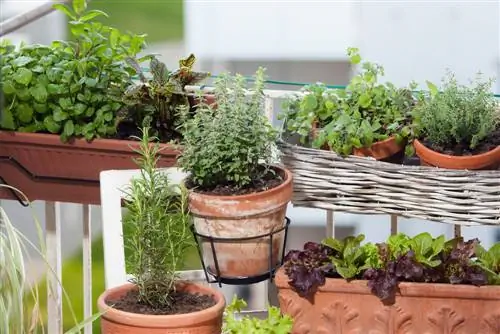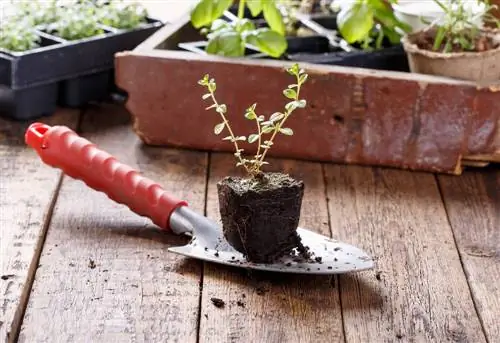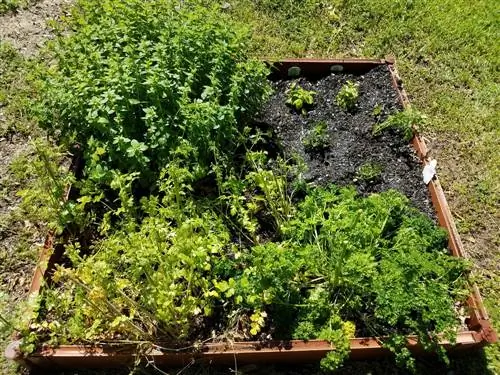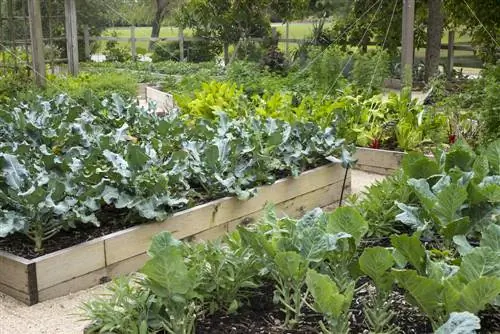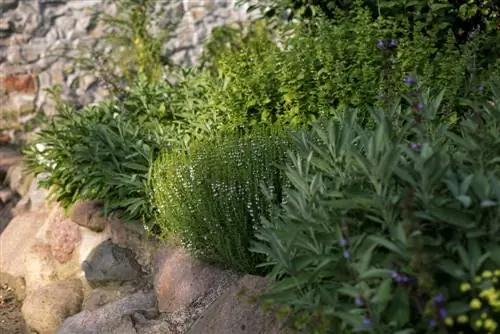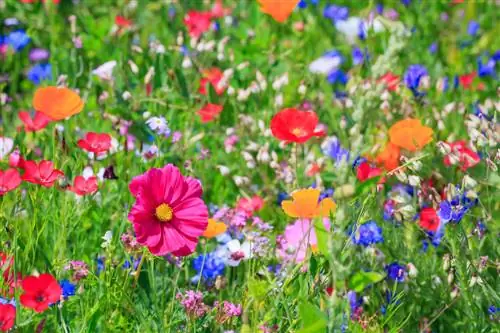- Author admin leonars@hobbygardeners.com.
- Public 2023-12-16 16:46.
- Last modified 2025-01-23 11:21.
Almost all herbs grow easily in pots, tubs and other planters. For some species, this form of cultivation is even preferable to growing outdoors: basil, for example, usually develops much more luxuriantly in pots than in the garden. Here, snails and adverse weather conditions often make life difficult for him.
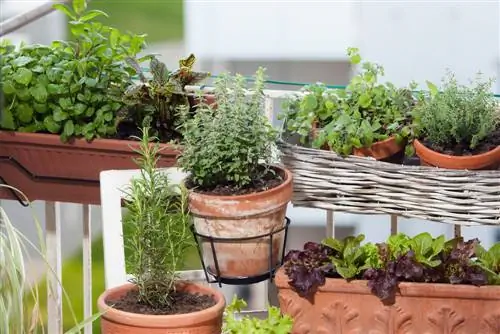
How do I care for a potted herb garden?
For a herb garden in a pot, you need commercially available herb soil, sufficient drainage, regular watering and fertilization, as well as suitable overwintering measures for frost-sensitive species. You can also use hanging baskets or hanging baskets for space-saving cultivation.
The right substrate for every herb
It is best to use commercially available herb soil for pot cultivation. Normal potting soil is always fertilized and therefore too nutrient-rich for most herbs. Pure, it is only suitable for demanding herbs such as mint, parsley or chives. However, you can also use sand in a ratio of 2:1, so that more ascetic species (e.g. those from the Mediterranean region) will also feel good.
It is essential to ensure good drainage
Whatever herbs you choose: All plant containers must have drainage holes - if necessary, simply drill some in yourself. Also plastic wrap that lines baskets, for example, has a few openings. Wet feet are deadly for most herbs. That's why you should also place pots and buckets on blocks so that excess water can drain away. Pay particular attention to plantings in planters, they literally drown after rain.
Water and fertilize potted herbs regularly
Since the volume of soil in the pot is very limited, water and nutrients are used up more quickly. Regular watering is therefore an important care measure. Fertilization, on the other hand, depends firstly on the type of plant and secondly on the substrate chosen. If it has just been freshly potted in the spring, the stored fertilizer will last until the summer. You can then fertilize demanding species every four weeks from June onwards, ideally with liquid fertilizer.
Overwintering herbs properly in the pot
Perennial, frost-resistant herb species can also overwinter outside in a pot. However, since the small volume of soil in the pot freezes quickly, as a frost protection measure, place the containers on insulating Styrofoam or wood and wrap them in bubble wrap, jute bags or a leaf pack. However, you can bring frost-sensitive species such as rosemary or fragrant pelargoniums into your house, cellar or garage before the first freezing temperatures. The winter place should be cool, but bright and frost-free.
Tip
Herbs with long shoots such as creeping thyme or oregano also thrive in hanging baskets or hanging baskets. This makes optimal use of the limited space on the balcony or terrace.

